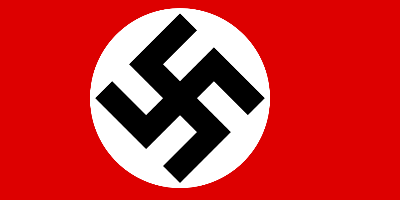7 set 1940 ano - Treaty of Craiova
Descrição:
The Vienna Diktat agreed on 30 August 1940 and, arbitrated by Germany and Italy, transferred Northern Transylvania from Romania to Hungary. Although Germany exerted diplomatic pressure to devolve Northern Transylvania, the government did not intervene actively in the Treaty of Craiova. It was enforced at the request of Adolf Hitler, who stated on July 31 1940, that southern Dobruja should be restored to Bulgaria to restore the 1912 Bulgaria-Romania border.The Romanian government were caught off guard by Hitler's message and expressed the wish to preserve at least the port of Balchik and the city of Silistra. The German ambassador suggested that Romanian sacrifices to Bulgaria would make Hitler more sympathetic to Romania in negotiations between Hungary and Romania over the Transylvania dispute. The Romanians sought to hold both cities, but the Bulgarian government declined since it was aware of German assistance.
Formal negotiations began on August 19 1940, in Craiova, following prior encounters in which the stances between the two parties became evident. The talks were difficult, and it was only in the face of the threat of Italian-German arbitration during the Hungarian-Romanian negotiations on 29 August that Romania attempted to gain the favour of the Axis powers. So the Romanian delegation declared its willingness to cede all of Southern Dobruja. The Romanians also tried to postpone the discussions while urging the Germans to protect Romania's territorial integrity.
The Treaty of Craiova resulted in a return to the borders of 1912. The southern part of Dobruja, which Romania had conquered during the Second Balkan War, was returned to Bulgaria, resulting in the loss for Romania of a territory covering 7,142 km2 (2,758 sq mi) and a population of which ethnic Romanians made up 25% or 28.4%.
On 7 September 1940, Alexandru Cretzianu and Henri-Georges Meitani, representing King Michael I of Romania, and Svetoslav Pomenov and Teokhar Papazoff, representing Tsar Boris III of Bulgaria, signed the agreement. On the Romanian side, Prime Minister and Conducător Ion Antonescu ratified the treaty on 13 September, but King Michael I did not.
Unlike the transfer of Northern Transylvania to Hungary in the almost-simultaneous Vienna Diktat, the loss of Southern Dobruja caused no uproar in Romania because Northern Transylvania was more important in the nationalist ideal with successive Romanian governments insisting on regaining it. The surrender of the Cadrilater ("Quadrilateral," another name for Southern Dobruja) was interpreted by the Romanian political class as "a mutilation of the country" forced by Axis pressures and by Bulgarian authorities as a "correction of an injustice."
The treaty included a population exchange at the request of Romania.
The 103,711 Romanians who lived in the area were forced to leave and relocated to Northern Dobruja. The 62,278 Bulgarians who resided in the northern part of Dobruja were forced to move to the south.
Most of those Romanians were settlers who had moved to Southern Dobruja following the Treaty of Bucharest, which gave Romania control of the region.
The Aromanian settlers, the majority of whom were Greeks, were counted as Romanians and were also expelled from the zone. The Megleno-Romanian settlers' case was similar; they were deported from Southern Dobruja and settled in the Romanian village of Cerna.
Bulgaria was required to compensate displaced Romanians for equity losses and to pay Romania 1 million [Romanian] lei for investments made in the region. Although the bilateral treaty involved the forced relocation of hundreds of thousands of people, it was carried out peacefully and in accordance with current international laws. Bulgaria rejected Romania's proposal to exchange all members of the respective ethnic minorities living in the rest of the two countries.
The forced relocations also affected the Dobrujan Germans, most of whom lived in Northern Dobruja, which was under Romanian control, though some also lived in Bulgaria's southern part.
They were ultimately transferred back to the German Reich through the Heim ins Reich ("back home to the Reich") policy.
Adicionado na linha do tempo:
Data:
7 set 1940 ano
Agora
~ 85 years ago
